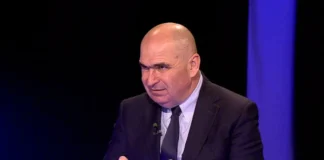A circular economy comes with a decrease, on average, by 50% of the carbon footprint, without stopping to extract the coal from the Jiului Valley, declared, on Tuesday, during the PRIA Environment conference, Constantin Damov, the president of the Green Group, according to Agerpres.
„I’d say that it is a start now for all European and world nations to take steps towards circularity. The European average of circularity, not recycling, according to Eurostat, is 13.8%. The potential is enormous and we believe that through a collaboration between all segments, starting from the collection companies, sorting, the warehouse-producer system, Romania has a chance to take steps towards circularity with a very high speed. I am optimistic and believe that we will be able to fight in the area of circularity with very many of the European countries. It is not a big handicap to recover. However, globally we have a regression. If in 2020 the degree of circularity was somewhere around 9.2%, globally, the circularity dropped to 8.6% and this is a worrying step. There are a lot of trends, there is a lot of „green washing” in which it is shown that it is recycled, but in fact, at the same time, much more it is produced. Everything is on the rise, the production of plastics is estimated to increase thrice until 2050. A percentage of 10%, in 2050, unrecycled means 30% unrecycled, today,” Damov stressed.
He characterized the environmental legislation in Romania as „in the red” and a mixture of laws that, in some places, contradict each other in the area of terms.
„I just want to say that there are a lot of legislative changes and I think that Romania has further a „red” environmental legislation. I mean, we translated the Directives, we quickly put some European directions, European regulations, regulations which are only translated and, in the end, we have a mixture of laws that, in some places, contradict each other, do not have the same terms. Even yesterday, I did not know if we were talking about separate collection or selective collection… It is clear that we are talking about separate collection and we believe that the selection area appears at the sorting stations, when we select things. There are many confusions in the area of terms even when we educate the consumer, because the consumer becomes a player in the circular economy and the first supplier of material. The idea of recycling appears when we separate two things in the house, we say we have recycled. Not at all. All these things are the preparation for recycling, recycling meaning an industrial process through which a material is transformed to have a second life, a second cycle of use,” Damov said.
PRIAevents is organizing, on Tuesday, the PRIA Environment 2022 conference, one of the most important debate platforms in which environmental companies, producers, retailers and authorities address, among others, the Deposit-Guarantee System.
Agerpres




